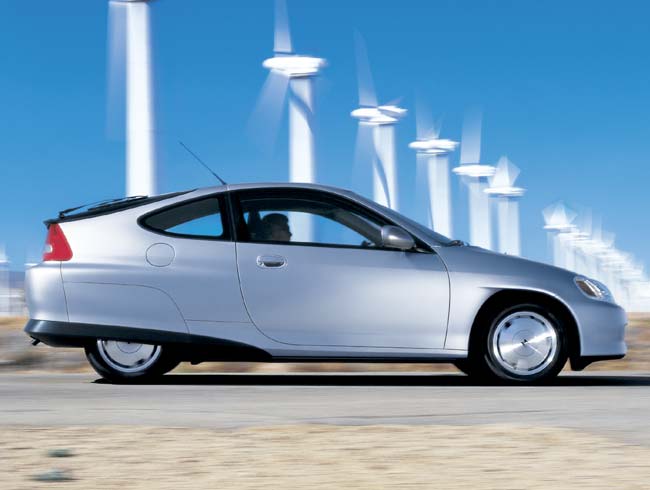The world’s natural resources are diminishing at such a rate that demand for fossil fuels will soon far outweigh supply. This is nothing new; the motor industry has been working on alternatives to the combustion engine for years. Electric and hybrid cars could be the vehicles to reduce the impact of carbon emissions on the environment.
Electric cars, as the name suggests, are run solely on electrical power via a lithium-ion battery. With electric car technology, the engine requires no air filter or oil changes and the battery engine is said to last at least 120,000 miles before being replaced. The number of electric cars on the road has not only risen due to an increased production number but also the fact that conventional petrol cars are also being converted, which is an attractive bonus in terms of recycling vehicles.
Whilst electric cars run solely off your power supply, a hybrid car uses both electrical energy and petrol for power. Your hybrid car is filled at the petrol station just as your conventional car and looks similar on the outside, but look under the bonnet and the similarities end. The hybrid car is more efficient than a standard combustion engine in that it uses an electrical battery and combustion energy in tandem to increase fuel efficiency. In series hybrids, a standard fuel engine produces electricity to generate the electric motor and propel the car. In parallel hybrids, the car is set in motion by the engine or battery. The great advantage of the hybrid car in terms of energy efficiency (resulting in reduced emissions) is that when the engine loading is low, any excess energy is stored and when the energy output needs to be increased, both the lead engine and stored energy work together to power the car. In fact, when the car is idle in electric mode it actually turns off. In addition, to conserve energy, the intelligent design of the hybrid switches to electric power when travelling at low speeds and remarkably even the residual energy produced when braking is fed-back into the lithium battery as reserve energy to be used as and when required.My Amazon Page
Many countries are making it more attractive to use alternative fuel with government incentives such as lower road taxes for vehicles with low CO2 emissions; and with the running costs for hybrids alone being 15-30% less per mile than conventional cars, that hybrid car is looking more and more attractive to the general public. Currently, the price of a hybrid is slightly more than a new conventional car, but as demand increases, prices will proportionally decrease.
Nevertheless, with the initial outlay being slightly higher, this extra cost will be reaped with savings in fuel consumption and reduced road costs. In terms of whether the electric or hybrid car suits your individual needs, it is a case of weighing up your driving needs, where you live and what is available in your area. In the end, regardless of the extra cost or savings (on your wallet or the environment) of these new types of vehicle, you will still have to carry out the same general upkeep and maintenance of your vehicle – the cost to replace your windshield, for example, will still be the same no matter what car you drive!
Isla Campbell writes for a digital marketing agency. This article has been commissioned by a client of said agency. This article is not designed to promote, but should be considered professional content.
Source: Article

No comments:
Post a Comment